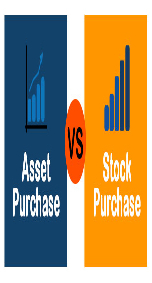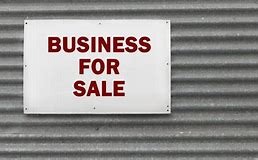Buying a Business, Assets or Stock/Share purchase?
Buy a Business – Asset Purchase vs. Stock Purchase
Buying a business, especially if it is your first time, can be overwhelming. Will you purchase the assets of the business, or its stock? Which is more beneficial for you? There is no clear-cut answer to this question as it really depends on your circumstances. 
In an asset purchase, you buy the company’s assets – furniture, vehicles, equipment, inventory, etc. The shares of stocks remain with the seller. In a stock purchase, you are buying everything the seller owns – stocks, assets and liabilities. You take over as the new owner of the business.
Should You Buy Assets or Stock When Buying a Business?
It is worthwhile to seek the services of a corporate lawyer and an accountant before buying a business. They can advise you on what is the best purchase option for you.
If a business for sale is doing well, you can opt for a stock purchase. However, if the business isn’t profitable, a stock purchase may not be the best option because you may be assuming its liabilities. Find out why the business is being sold.
If you want to build your own company, go ahead with an asset purchase. Before doing so, conduct thorough due diligence. Choose the assets you want to acquire, and the liabilities you intend to assume.
Two key factors – liabilities and depreciation – could determine which is the better option for you. When you purchase company stock, you also assume all its liabilities – disclosed or unknown. A seller may not be forthright about all the liabilities during negotiations. You could have also missed uncovering these liabilities during due diligence. In an asset purchase, you can avoid most of the liabilities. You are responsible only for those identified in the purchase agreement.
Depreciation is the process of deducting a portion of the cost of an asset from the income each year. In a stock purchase, you, as the new asset owner, will just continue deducting depreciation as the previous owner did. In an asset sale, though, the tax law allows you to depreciate the entire purchase price.
Asset Purchase vs. Stock Purchase: Advantages & Disadvantages
- In an asset purchase, the assets and liabilities are recorded at fair market value. You can claim the fair market value of tangible assets for depreciation, which results in lower taxes. In a stock purchase, the assets and liabilities are carried over and depreciated as before the purchase.
- You acquire the entire business, including all assets and liabilities when you purchase the company’s stock. In an asset purchase, you assume some of the liabilities. You can also choose the useful assets you want for your new company.
- An asset purchase may require more documentation. The transfer of ownership of the assets, liabilities and related contracts may need to be filed with the appropriate government agencies. This is not a requirement in a stock transaction. A stock purchase is easier and cheaper to implement, especially if the company only has a few shareholders.
In a stock purchase, you inherit the contracts, permits and licenses. In an asset purchase, you need to file or register for these with the appropriate agencies.
- There is no problem with minority shareholders who refuse to sell in an asset transaction. Multiple shareholders could block a buyer’s desire to own 100% of the company in a stock purchase.
- You may need to pay for sales or transfer taxes on the sale of assets. A stock transaction avoids some of these taxes.
Buying a business is complicated in itself. Each business purchase transaction is unique. Obtaining professional legal and accounting assistance is a must for a successful business acquisition. As a business buyer, which purchase option is better for you?
Contact Performance Business Brokers to discuss at info@performancebb.ca







